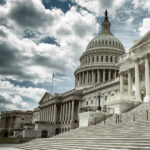Looking to wrap before the Trump Administration takes over, the Bureau of Industry and Security (“BIS”) issued a flurry of rules in its last week. Undersecretary Estevez stated in remarks at the Center for Strategic and International Studies that the rapid rulemaking involved rules with bi-partisan support and passing these rules now prevents delays stemming from the transition. Undersecretary Estevez stated that:
“… I’m cleaning my desk out so that my successor will have a desk that they can feel is theirs and taking my own pictures down off the wall, I want to leave a clean slate of not hanging issues that they have to grapple with immediately so they can figure out where they want to go and do.”
The new rules focus on technology export controls, mostly for articles sent to China. While BIS, under the direction of the outgoing Biden Administration, issued these rules, responsibility of enforcing these rules will fall on the Trump Administration.
BIS’s Recent Rules
Addition of 11 Chinese Technology Companies to Entity list for AI and Advanced Lithography Development – 11 Chinese companies were added to the Entity List. BIS stated that 10 of the companies advance the Chinese Military’s modernization through the development and integration of AI. The eleventh company is developing lithography technology for advanced-node fabrication facilities in China.
Addition of 14 Chinese Companies and 2 Singaporean Companies to the Entity List for Integrated Circuit Development – In a separate rule, BIS added 14 Chinese companies and 2 Singaporean companies to the Entity List. BIS determined that these companies were involved in the development of advanced computing integrated circuits. China could then use these advanced circuits in a wide range of technologies including weapons of mass destruction and high-tech surveillance systems.
Biotechnology Restrictions – BIS published a rule that creates two new Export Control Classification Numbers (“ECCNs”) for a narrow set of biotechnology equipment. The first ECCN is for high-parameter flow cytometers, which allow researchers to simultaneously measure characteristics of individuals cells or particles. The second ECCN is for liquid chromatography mass spectrometers designed for top-down proteomics. The spectrometer would be used to identify and characterize proteins and study their structures, functions, interactions, and post translational modifications. The new ECCNs are controlled for National Security, Regional Stability, and Anti-Terrorism reasons. The licensing requirements, and exceptions that come with these controls will apply to the new ECCNs.
Due Diligence Measures for Advanced Computing Integrated Circuits – Over the past several years, BIS has gradually added controls on the exportation of integrated circuits. This new rule continues this trend. BIS issued the rule in response to concerns about third party diversion to Chinese entities and that circuit producers may not have full visibility as to the end use of their products. The rule makes several modifications to the EAR including revising license exceptions, adding approved Outsourced Semiconductor Assembly and Test (“OSAT”) companies and IC designers, new reporting requirements for “front-end fabricators”, additional KYC requirements, as well as various other revisions.
Framework for AI Diffusion – The BIS issued a comprehensive rule meant to control the spread of AI. The rule expands AI chip controls by imposing a global licensing structure for the most advanced AI equipment. The rule whitelists exports to allied countries and adds conditional license exceptions. Certain data center end-users will be eligible for an authorization to receive large amounts of advanced AI Chips. The rule further imposes new controls on advanced close-weight AI models trained with 1026 or more computational operations.
Connected Vehicle Prohibitions – BIS passed a final rule that seeks to remove Chinese and Russian made software and hardware from passenger cars. The rule prohibits the importation and sale of any Russian/Chinese designed Vehicle Connectivity System (VCS) hardware, as well as completed vehicles with Russian/Chinese software. The rule applies broadly because the prohibition does not only apply to Russian and Chinese companies. Ultimate Chinese or Russian ownership or other means of control or influence over a company could cause the company’s software and hardware to fall under the rule’s prohibitions. The obligations that the rule imposes are not effective until Model year 2027 for prohibited software, Model year 2030 for prohibited hardware, and January 1, 2029, for hardware not associated with a model year.
Conclusion
Each of these rules are complex and interested parties should review each rule in depth. These rules serve as the end note of a Biden-era BIS that focused on curbing the ability of adverse powers using U.S.-made technology to modernize their military.

